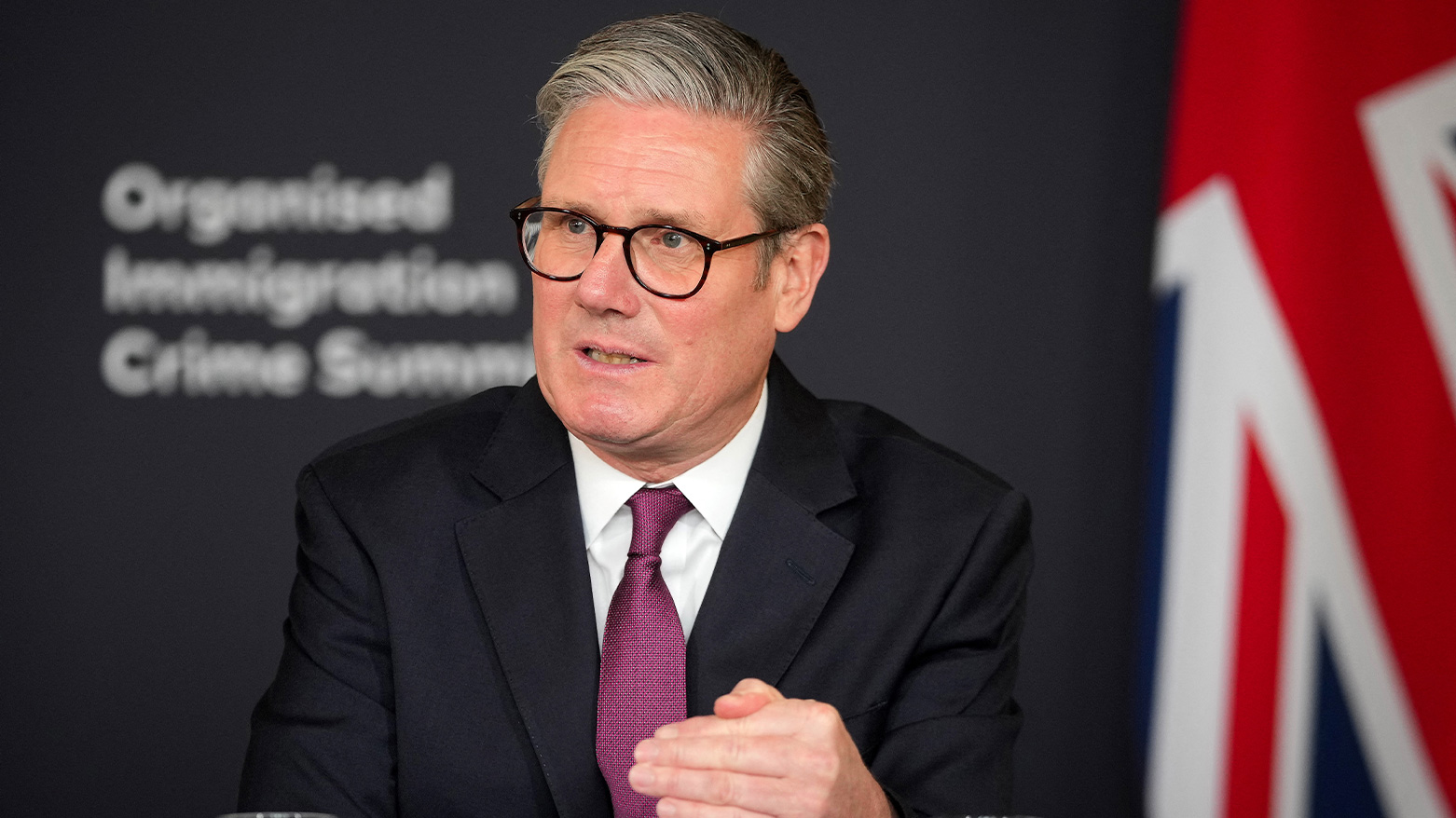'People Smuggling is Like Terrorism,' Starmer
"Illegal migration is not only a humanitarian tragedy but a major driver of global insecurity,” he added.

By Kamaran Aziz
ERBIL (Kurdistan24) – British Prime Minister Keir Starmer unveiled an ambitious and sweeping strategy to dismantle global human smuggling networks during a speech on Monday at the Organized Immigration Crime Summit held at Lancaster House in London.
Addressing representatives from more than 40 countries, Starmer called for unprecedented international cooperation to confront what he described as "one of the most pressing global security threats of our time."
Speaking in the same historic venue where leaders earlier this month met to support Ukraine’s sovereignty, Starmer drew a direct line between geopolitical instability and the rise of illegal migration. “Ukraine’s security is our security,” he said. “And the same is true for the security of our borders. Illegal migration is not only a humanitarian tragedy but a major driver of global insecurity.”
In a powerful and personal address, Starmer reflected on his 2016 visit to the refugee camps near Calais, describing scenes of suffering that continue to haunt him: “Children as young as five and seven, huddled in freezing temperatures, with nothing to keep them warm. That camp is gone, but the evil of people-smuggling endures.”
Starmer warned that human trafficking gangs exploit vulnerabilities within national institutions and divisions between countries, profiting from the political paralysis surrounding migration. “This is an evil trade that preys on desperation and profits from our inability to act collectively,” he said, affirming that the United Kingdom, under his leadership, would spearhead the global response.
Declaring that “there is nothing compassionate about turning a blind eye” to illegal migration, the Prime Minister likened the threat of organized immigration crime to terrorism, urging that it be met with equivalent urgency and force. Drawing from his past role as Director of Public Prosecutions, he recalled how coordinated international efforts had previously thwarted terror plots and saved thousands of lives. That same level of cooperation, he argued, must now be mobilized against the people smuggling industry.
Among the key measures announced was the creation of a new Border Security Command, headed by Martin Hewitt, and tasked with unifying intelligence, border enforcement, and law enforcement efforts across the UK. The government plans to recruit hundreds of specialist investigators and invest over £150 million over the next two years to strengthen border security and disrupt smuggling operations.
The new command will be empowered with expanded legal authority, including the ability to seize phones and digital devices from newly arrived migrants to gather intelligence on trafficking networks. It will also introduce new criminal offences, such as endangering lives at sea, to address the deadly risks of crossing the English Channel in flimsy, overcrowded dinghies.
Starmer condemned the previous government's Rwanda deportation scheme as a "gimmick," noting it had cost taxpayers over £700 million but removed only four individuals. In stark contrast, he announced that under the new Labour government, more than 24,000 individuals without legal residency had already been returned — a figure that would have taken the Rwanda scheme 80 years to match.
He highlighted new bilateral agreements with countries including France and Germany as examples of the UK’s renewed focus on pragmatic international collaboration. French maritime rules have been amended to enable more active patrolling in shallow waters, while Germany has closed legal loopholes that previously allowed people smuggling to non-EU countries to go unpunished.
Starmer also emphasized upstream prevention, working with countries such as Albania and Vietnam to deter illegal journeys before they begin. He underlined the importance of supporting economic development in origin countries to reduce the incentives for irregular migration. “There’s nothing progressive,” he said, “about letting working-age people abandon their homelands when we should be helping them build safer, stronger societies.”
The UK has already seen results from its renewed collaborative efforts. A joint operation between French, German, and British law enforcement recently dismantled a major Iraqi smuggling ring, while another investigation led to the arrest of a key supplier of small boat components in Amsterdam. Over 18,000 smuggler-linked social media accounts have been shut down this year — a 125% increase compared to 2023.
Starmer also announced a new sanctions regime targeting smugglers as if they were terrorists: freezing assets, banning travel, and prosecuting offenders. This, he said, would “put their entire business model out of commission.”
In addition to cracking down on smugglers, the Prime Minister pledged to hold employers accountable for illegal hiring practices. A new law will mandate right-to-work checks for all businesses, with failure to comply resulting in fines up to £60,000, possible prison sentences, and business closures. “There will be no excuses,” he said. “This is about fairness. It’s about protecting honest workers and businesses.”
The Prime Minister acknowledged that no single policy would end organized immigration crime, but stressed that the cumulative impact of coordinated action, technological investment, and international collaboration would bring long-term change.
"No shortcuts. No gimmicks. Just the hard graft of practical government," he said in closing. "Together, we will save lives, secure our borders, and deliver the fairness working people deserve."
The summit marks a turning point in the UK's approach to illegal migration and sends a strong signal to the international community that under Starmer's leadership, the UK is prepared to lead in the global fight against human smuggling.
